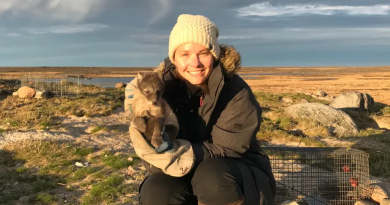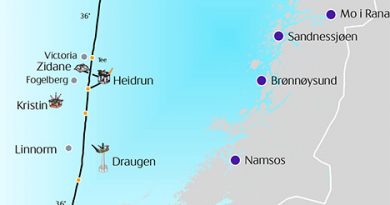Correctional centre in Canada’s Northwest Territories introduces therapeutic program

There are currently six people enrolled in the program, with a new cohort starting soon
A new program at the South Mackenzie Correctional Centre (SMCC) in Hay River, N.W.T., is taking a community-focused approach to healing and rehabilitation.
Warden Lorraine McDonald said a key feature of the “therapeutic community,” which launched in November, is respect for participants’ lives, dignity and potential.
“Within the community, inmates are no longer referred to as inmates. They’re called residents,” she said. “That’s one of the biggest changes within the program. And we also call them by their first name.”
In the therapeutic community, participants are guided to take responsibility for their own healing and look out for one another. Correctional centre staff are also involved, actively participating in many community activities such as daily sharing circles.
“The sharing circle includes all the residents within the community, and it could include the security staff, kitchen staff, correctional psychologists, traditional liaison counselors and myself and the deputy warden, if he’s on duty,” said McDonald.
Within the community, inmates are no longer referred to as inmates. They’re called residents.– Warden Lorraine McDonald
As part of the morning sharing circle, staff and residents read good news stories, share the sports highlights and list three things they are grateful for that day.
In the evenings, the community gathers again “to bring about any business or concerns that may have arisen throughout the day.”
McDonald says this is also an opportunity for staff and residents to share “pushups,” encouraging notes about positive actions they’ve seen, like when a resident helped one of their fellow community members or volunteered for a chore.
“As this community is developing, you’re seeing people feeling safer and more comfortable within that circle,” said McDonald. “So it’s a really positive, positive [part of] the day and promotes learning and growth.”
More responsibility given to residents
The Department of Justice had been exploring the therapeutic community model since 2018.
Currently, six residents at the SMCC are participating in the therapeutic community, and McDonald says another cohort will be starting soon.
In the future, she hopes this could be a model for other programs in the N.W.T.
“Even though we are a correctional facility and operating this model within the correctional facility, the difference is that it operates like a community and there is more responsibility given to the residents within the program,” she said.
“So as opposed to being told what to do every day, they take on those responsibilities themselves — to be on time for programming, to set their alarms, etcetera. And they’re also responsible for each other within the program.
“People are not doing time in isolation. They’re operating as a community and supporting each other.”
‘It’s not an us-and-them jail-like attitude’
Yellowknife lawyer Peter Harte says he is going to be watching the results of the therapeutic community to see if it might be helpful for some of the people he represents.
“Almost all of the offenders that I deal with have a history of trauma or abuse of some sort, and I think they deserve to be cared for in a therapeutic setting,” he said.
He would like incarcerated people in the N.W.T. to be able to access more forms of trauma therapy and is not sure how well the new therapeutic community will meet the kinds of needs he is seeing.
“It’s difficult to know what the impact of it would be,” he said.
But while long-term results from the therapeutic community are yet to be seen, McDonald says the relationship between staff and residents at the SMCC has already improved.
“[Staff are] more involved in the community, supporting residents. There’s trust,” she said. “It’s not an us-and-them jail-like attitude.”
Related stories from around the North:
Canada: Ontario Inuit org says recommendations from Mark Jeffrey inquest an important step forward, Eye on the Arctic
Finland: Police in Arctic Finland overstretched, says retiring officer, Yle News
United States: Alaska reckons with missing data on murdered Indigenous women, Alaska Public Media



